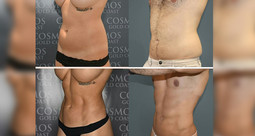Are you unhappy with your looks? Do you think that your nose is too flat?
You’ve probably thought about plastic surgery before and it’s nothing to be ashamed about.
It’s not as uncommon as you think.
As of 2016, over 250,000 teenagers perform plastic surgery in the US alone. Factor in places such as Asia and Europe and the numbers add up to a significant amount.
Plastic surgery among teenagers have been an issue of controversy some time ago but advances in medical and social practices have seen plastic surgery rise in popularity over the past few years.
Plastic surgery is an option for teenagers who need help with their physical appearance such as reconstructive surgeries.
However, it is important for teenagers to understand some basic things about plastic surgery; doctors have the rights to decline a teen patient’s requests – especially if there are no valid grounds for a surgery.
In this guide today, we’ll cover everything you need to know about plastic surgery among teenagers.
Reasons for getting plastic surgery as a teenager
There are a variety of reasons for getting plastic surgery but it can be broken down into two main reasons:
- Reconstructive purposes
- Aesthetic and cosmetic purposes
Reconstructive purposes
Some teenagers are born with defects such as cleft lips and palates and ear deformities; traumatic cases such as accidents and diseases may also affect a teenager’s appearance.
These cases often affect a teenager’s dignity. At this age, teenagers are affected easily by judgment from themselves and others; their feelings are also volatile which leads to stress.
Reconstructive plastic surgery offers these teens a chance to love themselves again by fixing the parts that are the cause of their concerns.
These surgeries go very well most of the time; patients usually describe their surgeries as a life-changing and emotional experience.
Plastic surgery can be a viable option for teenagers, especially in reconstructive procedures.
Aesthetic and cosmetic purposes
Teenagers may also consider plastic surgery for aesthetic purposes.
Once again, physical appearance issues are a common theme in teenage patients. They may be affected by comments of fellow peers or they are just eager to follow the latest cosmetic trends.
Some teens may not be happy with the size of their breasts, some of them might want a sharper nose or hollow cheekbones – teenagers just want to look better and that’s understandable.
Is plastic surgery an option for me as a teenager?
If you have physical defects and you would like to get if fixed, then surgery may be an option for you.
However, any reputable and trusted doctor will gauge these factors before deciding if you are ready for plastic surgery.
Goals and expectations
Your doctor will decide if your goals are achievable or not with plastic surgery.
A lot of teenagers go to clinics and ask for breast enlargements, mini liposuctions, or other procedures; a large part of these requests are turned down by doctors.
Cosmetic surgery helps in body contouring, however, it is not a magical procedure. The breast implant size that you want may be too big for your body structure, the butt lift that you want may be too hard to achieve – your expectations have to be realistic and achievable.
The best way to find out if your goals are attainable is by going through a few consultations with your doctor.
Potential risks
Plastic and cosmetic surgery have advanced so much over the years that risks are now very minimal in many operations.
With that being said, most surgeries require tiny incisions and cuts. Your doctor will decide if the risks are acceptable enough for the surgery to go through.
Your doctor may also turn your requests down if he or she thinks that the risks of the surgery are not worth the operation.
Consent and support
Most doctors will require consent from a teenage patient’s parents or guardian for the surgery to go through.
More importantly, doctors will only perform the surgery if and ONLY IF it is requested by the teenage patient.
Plastic surgery is a no-go if it requested by the patient’s guardians or parents – the desires of another individual may not be what the patient wants.
Emotional maturity and stability
A doctor will have to understand a teenage patient’s emotional maturity in order to decide if plastic surgery is viable or not.
The effects of plastic surgery last for a long time; hence, doctors need assurance that teenage patients won’t regret their decision 10 or 20 years down the road.
Doctors may decline a surgery request if the motives of the surgery are immature or unwarranted.
For example, if a teenage patient wants to undergo a boob job for her boyfriend or to show it off to her friends, that is not a valid reason to undergo plastic surgery and most reputable doctors will decline the cosmetic surgery request.
The line between acceptable or not in plastic surgery is vague and unclear most of the times; it is best to consult your doctor to have a better understanding of your desires.
The most important thing to know in every plastic surgery is that your happiness is the most important thing. Plastic surgery does not change who you are nor does it change how your view yourself.
What are the terms that I need to know for plastic surgeries?
There are names for different types of procedures in plastic surgery. Below are some of the common terms to guide you.
Rhinoplasty (also known as a nose job) – One of the most common cosmetic procedures among teens. Teenagers undergo rhinoplasty to reshape their nose due to defects or for cosmetic purposes. The nose must be fully developed (around the age of 16-17) for surgery to be done.
Breast augmentation (also known as a boob job) – The procedure involves using breast implants to alter the shape of a patient’s breasts. Teenagers who have breasts that are too large may undergo breast reduction to reduce the size and fullness of their breasts.
Otoplasty (also known as an ear surgery) – An otoplasty is performed in cases where the ears of a patient are deformed due to defects or injuries.
Gynecomastia (also known as man boobs) – Gynecomastia is the name of a disorder that is attributed to the increase of breast tissue in men.
WebMD has an excellent resource for common terms in the plastic surgery industry. You can check it out by clicking on this link.
Costs of plastic surgery
The cost of plastic surgery may differ based on several factors such as:
- Your doctor’s experience and qualifications
- The location of your clinic/treatment facility
- The type of surgery that you go for
In general, you should expect your medical bill to be in the four to five-figure range for most operations. The best way to get an accurate estimate of your costs is to ask your doctor about it.
PlasticSurgery.com has an excellent resource for patients to get an estimate for their surgery costs.
Further information
If you’d like to know more about liposuction or cosmetic surgery in general, head on over to our site for more info. PlasticSurgery.org is also another valuable resource to read up on plastic surgery.
You can contact us through this page for consultations or call us at 1300-138-797 to get in touch with our team of experts for further information.






